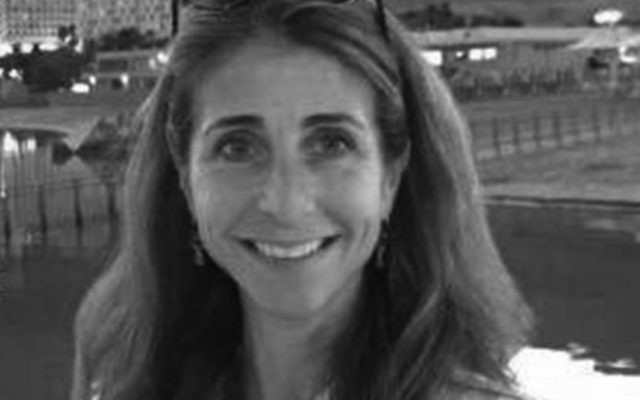We face ‘staggering’ health challenges
The deputy head at Immanuel College speaks about the community's concerns ahead of a national awareness week focusing on eating disorders
The deputy headteacher of one of the UK’s top Jewish schools has warned of a “staggering” increase in mental health challenges affecting Jewish youngsters and called on the community to come together to tackle the problem.
Beth Kerr, deputy head at the independent Immanuel College, was speaking ahead of a national awareness week focusing on eating disorders, as parents and young adults warned of the dangers.
Atalia Cadranel, whose daughter Liora Cadranel suffered from anorexia, issued a rallying cry to improve education on eating disorders, which affects both boys and girls, young and old.
“We need to talk more openly about eating disorders because it is a hidden illness,” she said. “Not doing so contributes to creating the hush-hush taboo. Perhaps if sufferers didn’t feel like there was this taboo, they wouldn’t feel so alone.”
READ MORE:
- Liora Cadranel: Why I’m finally revealing my battle with anorexia
- Atalia Cadranel: A parent’s role in the recovery for an eating disorder
- Editorial: Breaking the silence on eating disorders
Partnerships for Jewish Schools (PaJeS) said there was currently no programme or community-specific initiative to increase understanding in this area, and Kerr backed the call for greater understanding and support, especially for young people.

“The increase in mental health challenges in the past few years has been staggering,” she said. “Some days I feel like a GP, but early intervention and support prevents escalation to more serious problems.”
Mental health charity Jami, which works with staff and children in primary and secondary schools, covers the topic in its Mental Health First Aid programme, but accepts there was “still a stigma”.
Its head of services, Tanya Harris, said that while the number of referrals for eating disorders was low and not on the rise, added: “This doesn’t mean to say there aren’t community members struggling with eating disorders; it just means they aren’t seeking help from us.”

She warned of the limits to what could be done on a non-clinical community level.
“We have to be careful about wading into health,” she said. “We don’t deal in diagnoses, we don’t treat people medically. Eating disorders are a specialist area, requiring specialist staff with specific training, and it often comes with other medical diagnoses, such as depression and anxiety.”
She added: “Our ethos is to support people to live the lives they want to lead despite their diagnosis and associated symptoms. We’re doing a huge amount to raise awareness in schools.”
Kerr called on community members to come together to “help children withstand the pressures of adolescence in the digital age”.
She said: “If we in the Jewish community as a whole had a vision for more sport, drama, dance, music and art in schools and their local areas, to maximise children’s opportunities for participation, this united voice would be a powerful one.”
Beth kerr’s checklist: How Jewish schools should tackle problems
- Know and understand the children well, and be given time to do this. We have pastoral heads, all experienced and trained practitioners, who can quickly pick up on any changes in a child which may indicate a mental health condition.
- Create a culture of openness and sharing, a ‘telling school’. All the children should know who they can go to for help, and students and staff should be encouraged to report even small concerns. This culture facilitates early intervention.
- Ask pupils to question the images they see on social media, working with the self-esteem team to expose the camera work behind those ‘beautiful’ body images shoved down the throats of our young people, images they undoubtedly swallow.
- Promote health and well-being. If children are engaged in activities such as sport, music, drama or debating, they are not on social media which, for us, is the thief of self-esteem and the catalyst of unattainable comparisons with photo-shopped ‘rolemodels’.
- Work closely with multi-disciplinary teams, because some children require specialist help. We visit them regularly and reassure them that we are here for them, and want to welcome them back to our community as soon as they are ready.

Thank you for helping to make Jewish News the leading source of news and opinion for the UK Jewish community. Today we're asking for your invaluable help to continue putting our community first in everything we do.
For as little as £5 a month you can help sustain the vital work we do in celebrating and standing up for Jewish life in Britain.
Jewish News holds our community together and keeps us connected. Like a synagogue, it’s where people turn to feel part of something bigger. It also proudly shows the rest of Britain the vibrancy and rich culture of modern Jewish life.
You can make a quick and easy one-off or monthly contribution of £5, £10, £20 or any other sum you’re comfortable with.
100% of your donation will help us continue celebrating our community, in all its dynamic diversity...
Engaging
Being a community platform means so much more than producing a newspaper and website. One of our proudest roles is media partnering with our invaluable charities to amplify the outstanding work they do to help us all.
Celebrating
There’s no shortage of oys in the world but Jewish News takes every opportunity to celebrate the joys too, through projects like Night of Heroes, 40 Under 40 and other compelling countdowns that make the community kvell with pride.
Pioneering
In the first collaboration between media outlets from different faiths, Jewish News worked with British Muslim TV and Church Times to produce a list of young activists leading the way on interfaith understanding.
Campaigning
Royal Mail issued a stamp honouring Holocaust hero Sir Nicholas Winton after a Jewish News campaign attracted more than 100,000 backers. Jewish Newsalso produces special editions of the paper highlighting pressing issues including mental health and Holocaust remembrance.
Easy access
In an age when news is readily accessible, Jewish News provides high-quality content free online and offline, removing any financial barriers to connecting people.
Voice of our community to wider society
The Jewish News team regularly appears on TV, radio and on the pages of the national press to comment on stories about the Jewish community. Easy access to the paper on the streets of London also means Jewish News provides an invaluable window into the community for the country at large.
We hope you agree all this is worth preserving.






















